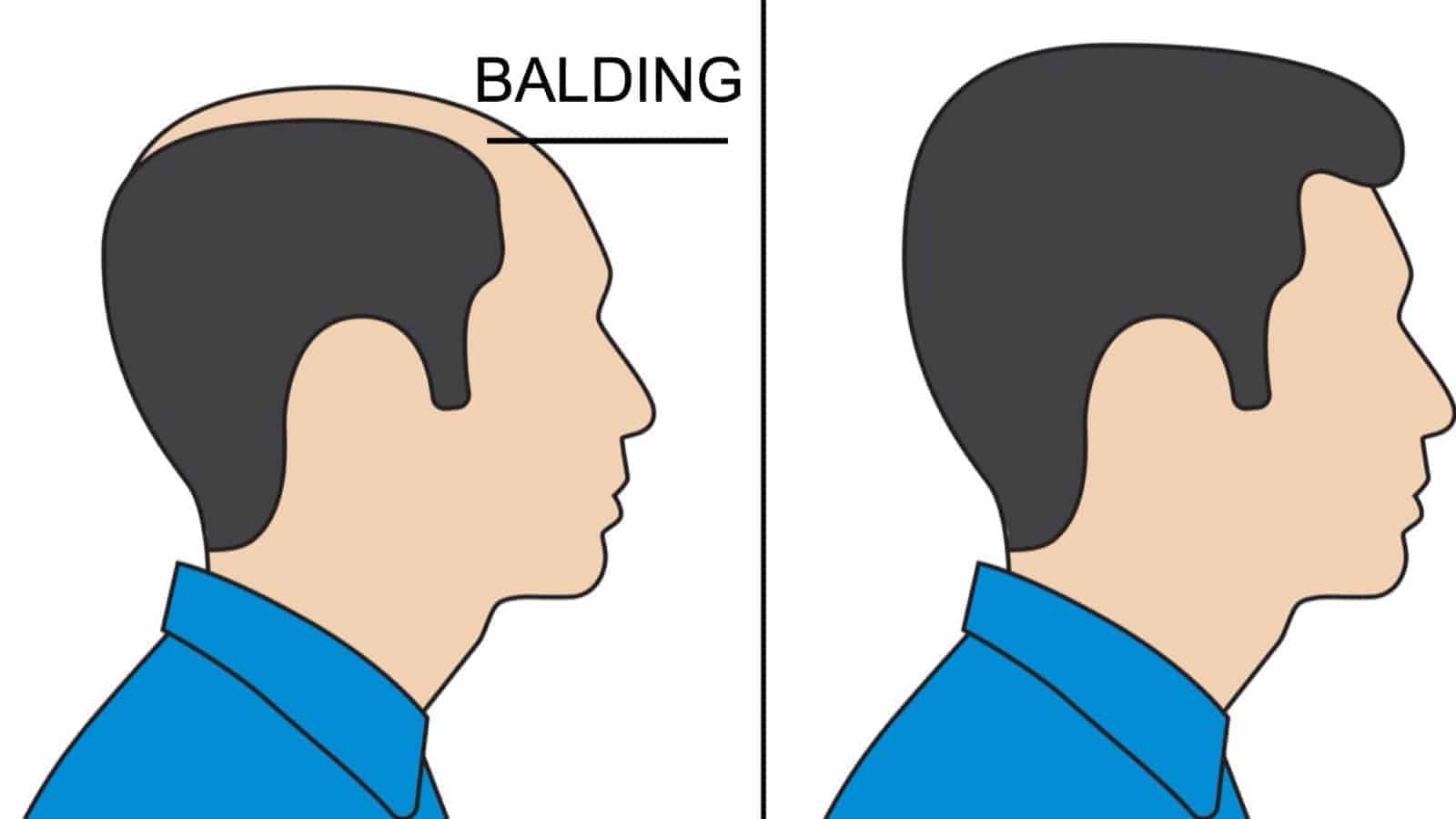What began as a study to investigate the mechanisms of a rare genetic disease may have uncovered instead the root cause of balding and hair greying.
“Although this project was started in an effort to understand how certain kinds of tumors form, we ended up learning why hair turns to gray and discovering the identity of the cell that directly gives rise to hair.” ~ Dr. Lu Le
Dr. Lu Le and colleagues were looking into a disorder called neurofibromatosis type 1 (‘NF1′), a genetic condition whereby tumors grow on nerve tissue in the brain and spinal cord. While this research remains ongoing, the team may have discovered a breakthrough in the cause and, possibly, treatment, of baldness and greying.
Grey hair, hair loss, and balding are natural and heavily influenced by genetics. While losing or greying of hair is not harmful, it can induce psychological stress (which, BTW, is not related to greying or baldness!) To this end, Dr. Le and colleagues believe that their research will eventually produce new treatment options.
Quick Stats About Balding And Graying
According to a study published in the Journal of Dermatology, 74% of people between the ages of 45 and 65 display some degree of greying. 6 to 23% of adults worldwide have 50 percent gray hair coverage by the age of 50 years.
Contrary to popular belief, a higher percentage of women display noticeable hair loss than men. The website statisticbrain.com cites that 80% of women will have noticeable hair loss by age 60, compared to 65% of males.
More data is available on men than women regarding hair loss. 40% of men will have noticeable hair loss by age 35; 65% by age 60, and 70% by age 80.
The Study
Dr. Le and colleagues found that an abnormality or absence of one of two proteins – ‘KROX20’ and stem cell factor (SCF) – “play(s) a significant role in hair loss and graying,” respectively.
Previous studies show that hair follicles (openings from which hair grows) contain specialized cells that aid hair growth. Le and his team observed that when SCF cells are transported to the base of the follicle, KROX20 activates in turn, which permits hair growth.
When SCF cells were removed from the genes of mice, the rodents grew gray hairs. When KROX20 were removed, the mice grew no hair at all.
In short, Le’s study shows:
– The molecules involved in hair loss: KROX20.
– The molecules involved in greying: SCF
– The manual transfer and integration of SCF and KROX20 stimulate hair growth with ‘natural’ pigmentation and tone.
The Implications
At the study’s conclusion, Dr. Le notes:
“With this knowledge, we hope in the future to create a topical (applied) compound or to safely deliver the necessary gene to hair follicles to correct these cosmetic problems.”
Let’s break down Le’s answer into two parts: (a) Potential treatment implications for hair loss/balding, and (b) Potential treatment implications for greying.
In one study of 984 people, researchers set out to answer the question “How effective is rogaine?” Of the 984 participants, 62% reported a reduction in hair loss. As far as hair regrowth, the drug was rated as “effective” in 48% of the cases, and “ineffective” in 16% of the cases. All told, the product works at about a 50/50 clip (Rogaine advertises this number as well.)
Dr. Le, it is assumed, seeks to improve on products such as Rogaine by implementing his findings from the study. A topical hair product is traditionally expensive (a 2-ounce supply of rogaine is $30), and – should the product prove effective – the person must continue to use it to see results.
Part (b) of Le’s response is a bit more intriguing; “…to safely deliver the necessary gene…” implies a type of hair gene therapy. As the name all but gives away, gene therapy is an expensive procedure.
Per the American Hair Loss Association, “(gene therapy) is a medical treatment still in its infancy.” As such, there exists few documented cases of the therapy working.
Of course, plenty of hair coloring products exist on the market, and there is no shortage of hair stylists. However, as anyone who has dealt with greying hair can attest, coloring and recoloring is not only expensive, but time-consuming.
When experts refine the gene therapy process for treating hair loss and greying, which is inevitable, they may just find a multitude of participants for their studies.














 Community
Community

